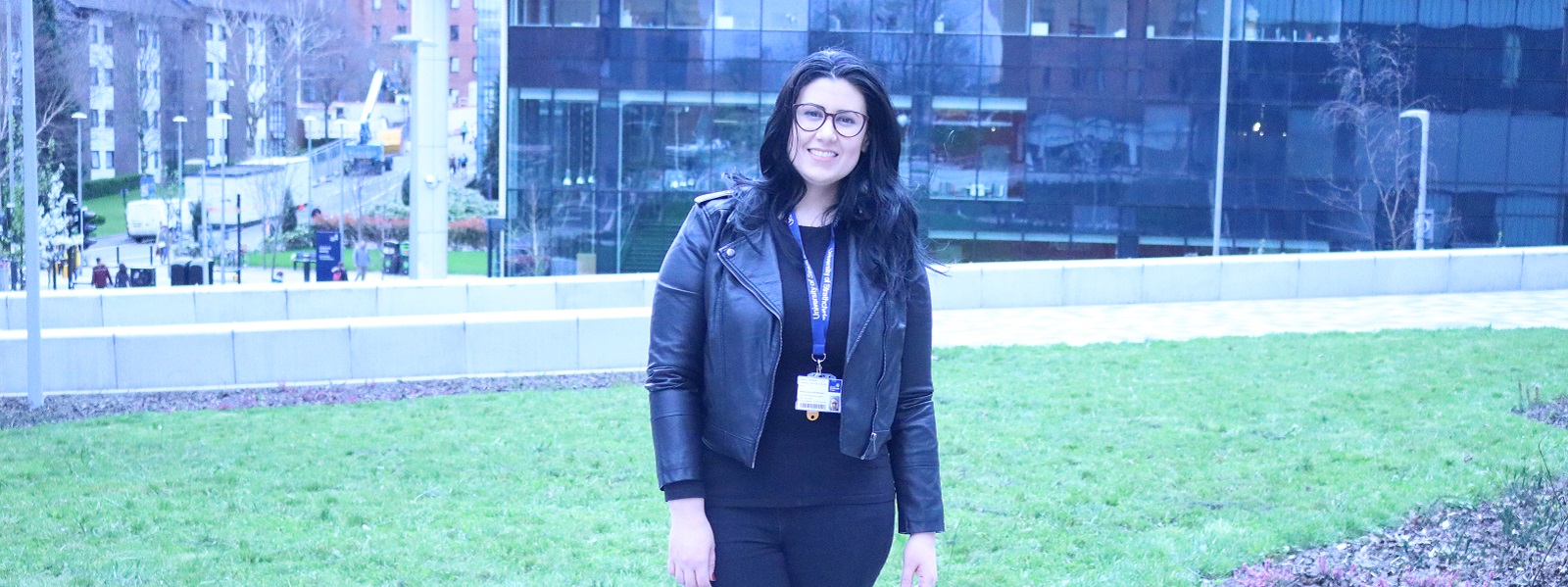Keyla is a 1st year PhD student in the School of Social Work & Social Policy. Hailing from Brazil, Keyla shares an insight into her PhD so far.
Why did you choose Strathclyde for your postgraduate research study?
Strathclyde presented me with an opportunity to pursue a good PhD programme with varied activities throughout the PhD. The supervision team has helped me quite a lot, giving me insightful notes about my work.
Tell us about the nature of your research?
I’m studying the way in which palliative care came to be an intrinsic part of global governance. I’m investigating not only the history of palliative care, i.e. how it came to be a medical specialty, but specially how it came to be an important part of end-of-life care policy worldwide.
What do you like about your research area?
Investigating the political aspects of palliative care has been challenging in many aspects. Exploring the narratives behind many documents that base our current policies of end-of-life care illuminates how the paradigms on end-of-life care approaches have changed throughout the years; who are the actors involved in these changes; and who are they serving. Thus, it is an instigating field of research, one that involves questioning many of the premises that builds our perception of end-of-life and end-of-life care.
What’s the Strathclyde research community like?
Here at Strathclyde we can engage with a variety of students from different schools, with varied research interests which makes our exchanges much more productive. National and international students are often together exchanging ideas and getting to know each other, and sharing their experiences, which for me creates a real sense of community.
What are the Strathclyde facilities like?
The work room is divided in quiet study zones, quiet study rooms, laptop space, personal desks as well as communal spaces. It’s a collaborative work environment, in my experience.
Tell us about the support from your supervisor and the wider Strathclyde team?
My supervision team is very accessible and supportive which makes a lot of difference. I feel like they are very engaged with my research and my PhD journey, offering all the support they can individually as well as institutionally. The Strathclyde team is always ready to help as well, I feel very supported.
What's the best thing about Strathclyde?
I would say the supervision support and research community.
What would you like to do after your PhD?
I haven’t thought much about that yet, but I would like to work with end-of-life NGO’s or following an academic career.
StrathLife
What are the main differences between studying in Brazil and in the UK?
The research area I’m in is very underdeveloped in Brazil. The UK has far more advancements in end-of-life care and end-of-life care policies than in Brazil, so I have access to literature, confereces, lectures that I would never have access to in my home country.
What was it like moving to Scotland?
Since I come from a tropical country I would say that the weather is challenging. But people here in Scotland are great, so I felt very welcomed which made things easier.
What is it like being a student in Glasgow?
Amazing. Glasgow is such a great place to be, a lot of cultural activities as well as a vivid night life.
What do you like to do in your spare time?
I tend to go out with friends whenever is possible.
What do you like most about the city?
The people are great, lots of great pubs and interesting restaurants.
What’s your favourite Scottish word/phrase, and why?
I love when they say ‘wee’ and ‘aye’.
Is there anything else you’d like to say?
It has been a great experience not only academically but personally as well, I feel like I’m growing as a researcher as well as a person here.

